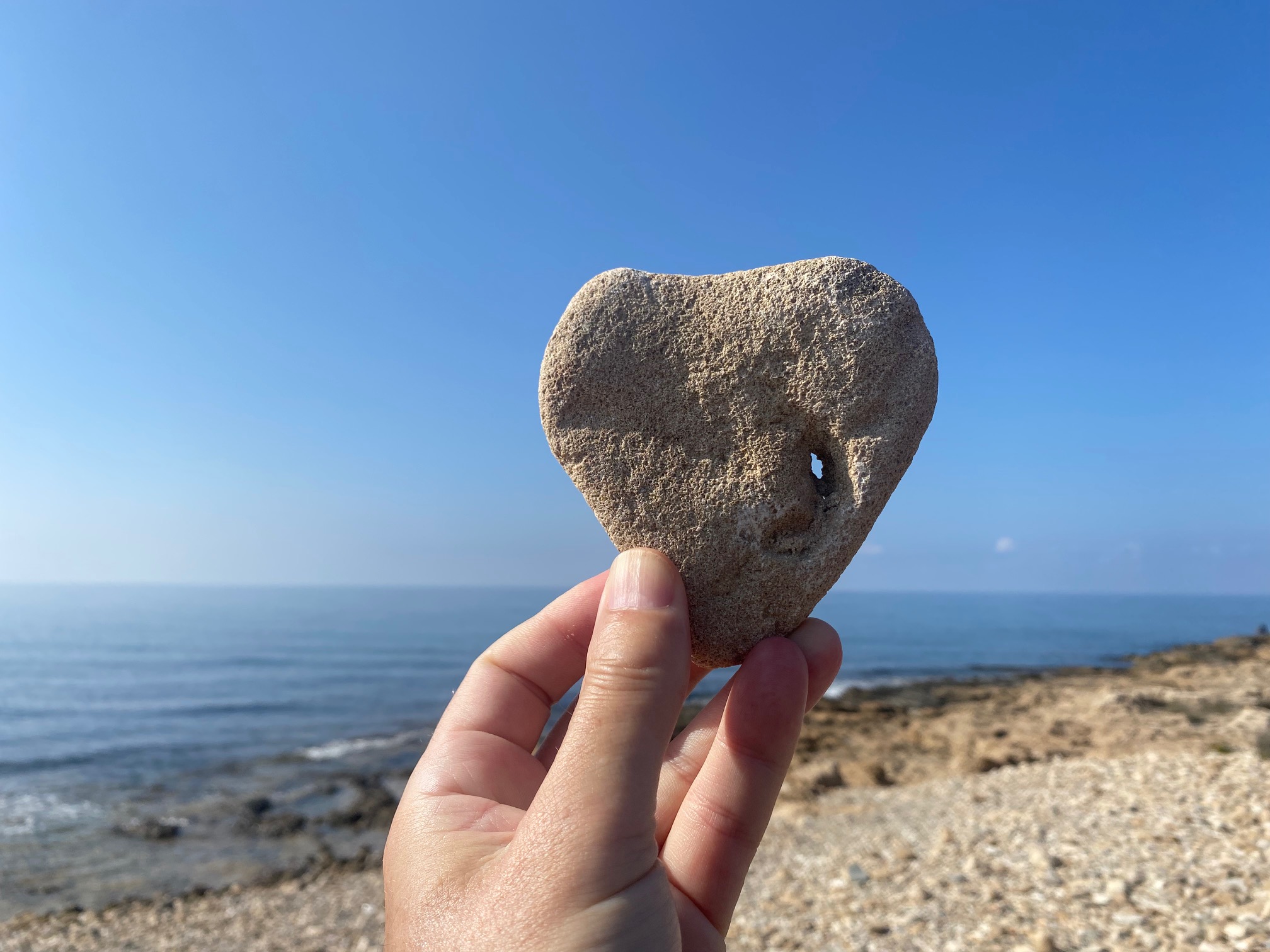On the shores of Cyprus,
home of the Goddess of Love,
near the Paphos Castle,
south of the Tombs of the Kings,
is a stone.
This stone is hidden
among millions of other stones.
People have been walking
past this stone for more than
five thousand years.
But it has attracted no attention.
The stone is heart-shaped,
penetrated by two holes,
one slightly larger than the other,
cast to this shore by Aphrodite
to ease the suffering in her heart.
The small hole represents her misery
from losing her dear Paris
at the battle of Troy.
The large hole represents
her inconsolable pain
from losing her lover Adonis,
gored to death by her jealous former lover,
Ares, God of War, who was
disguised as a boar.
And now the stone is found,
imprinted with Aphrodite’s passion
and with her sorrow,
to be placed at her temple,
to be guarded,
to be honoured,
to be a reminder
of both the majesty
and the fragility of love.
